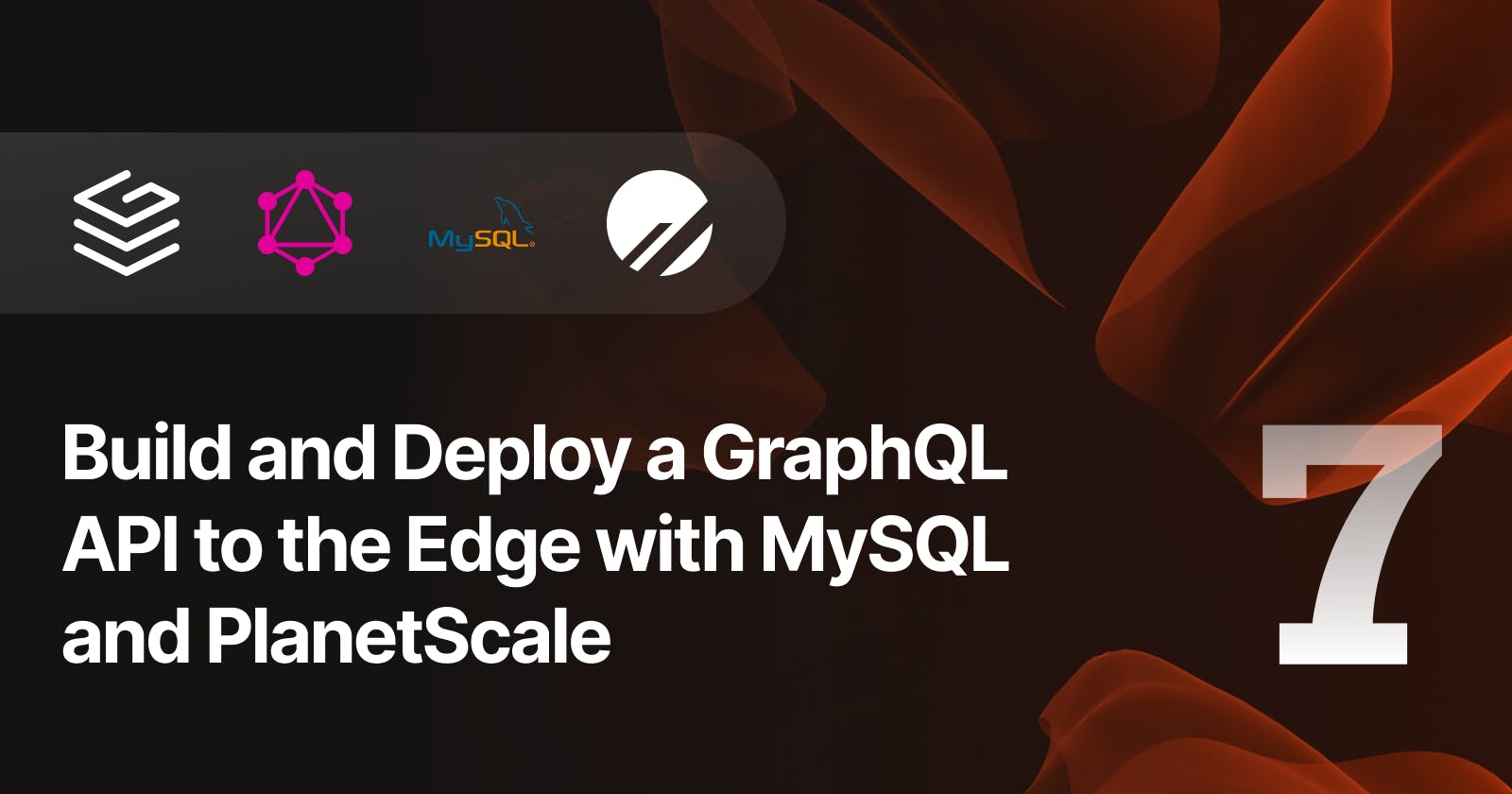Build and Deploy a GraphQL API to the Edge with MySQL and PlanetScale — Part 7
Fetch Product by ID or Unique field query
GraphQL queries are typically used to fetch data and return it in a certain shape. We will create two queries in parts 7 and 8:
product— fetch a single productbytheidorslugvalueproducts— fetch all products in the database and return them as a list
g.query('product', {
args: { by: g.inputRef(productByInput) },
resolver: 'products/single',
returns: g.ref(product).optional()
})
Now create the file grafbase/resolvers/products/single.ts and add the following:
import { connect } from '@planetscale/database'
import { GraphQLError } from 'graphql'
import { config, options } from '../../lib'
const conn = connect(config)
export default async function ProductsSingle(_, { by }) {
// ...
}
Just like before we add the necessary imports and ProductsSingle default export.
Now we'll add a bit more to the file that will:
Throw an error if both
idandslugare passedSelect the product from the database
WHEREtheidis of the value passedSelect the product from the database
WHEREtheslugis of the value passedThrow an error if no
idorslugvalues are passed
The full delete.ts should look something like this:
import { connect } from '@planetscale/database'
import { GraphQLError } from 'graphql'
import { config, options } from '../../lib'
const conn = connect(config)
export default async function ProductsSingle(_, { by }) {
let results
try {
if (by.id !== undefined && by.slug !== undefined) {
throw new GraphQLError('Only one of ID or Slug should be provided')
} else if (by.id !== undefined) {
results = await conn.execute(
'SELECT * FROM products WHERE id = ? LIMIT 1',
[by.id],
options
)
} else if (by.slug !== undefined) {
results = await conn.execute(
'SELECT * FROM products WHERE slug = ? LIMIT 1',
[by.slug],
options
)
} else {
throw new GraphQLError('ID or Slug must be provided')
}
return results?.rows[0] ?? null
} catch (error) {
console.log(error)
return null
}
}
Open Pathfinder and execute the following GraphQL query to fetch by id:
{
product(by: { id: "1" }) {
id
name
slug
onSale
price
}
}
You can also fetch it by slug if you update the query to use that argument instead:
{
product(by: { slug: "shoes" }) {
id
name
slug
onSale
price
}
}

